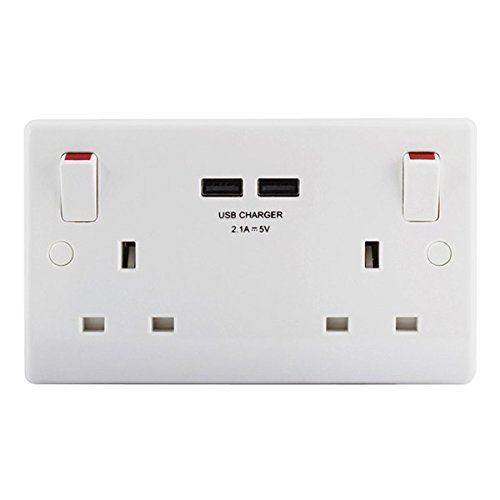AC DC AC DC AC DC AC DC
My solar panels deliver pure Direct Current electricity into my house.
All my house has Alternating Current circuits. Therefore, I need an inverter to change the DC to AC. This is inefficient.
Most of the electronic devices I own are powered by DC. So I plug little wall-warts into the AC sockets to convert back to DC. This is also inefficient.
One of the DC devices I'll be getting soon is the Maslow Battery. It's like the Tesla home battery. A several kWh array which can power my home once the sun has gone down. It discharges via AC. Again, another inefficiency.
- Solar Panels - DC-AC
- Maslow Battery Charging - AC-DC
- Discharging into the mains - DC-AC
- Powering a phone, computer, TV, etc - AC-DC
Generally speaking, inversion is around 95% efficient. Worst case scenario, that's an 18.5% loss of energy through inefficiency.
Now, it's not all doom and gloom. The Maslow battery has a dedicated DC circuit which can power light and some USB devices - that takes us down to a 10% loss.
It Doesn't Have To Be This Way
Those of you who've studied history may recall "The War of the Currents". In the early days of electricity there were constant arguments over how electricity should be distributed - AC or DC? Think of it like the iPhone/Android war of its day.
There were lots of scare stories over AC (used in the first electric chair) and DC (you won't be able to let go of the wire) - but both are equally deadly if mishandled.
Eventually - and I'm simplifying - the world settled on AC for long distance transmission of electricity. It's perfect for keeping polluting power plants away from residential areas. For general use in the modern house, DC is far more practical.
Can we change the world? Would it make more sense to carry on distributing AC power - but have every home use a single, efficient inverter?
There are a few devices in the home which would still need unadulterated AC - fridges, cookers, vacuum cleaners - which can still run off the power supplied to the home. So perhaps we still need dual circuitry in our homes.
Consider these plug sockets which you can retro fit -

But that's still using lots of small inverters rather than one big one.
And it uses the older version of the USB standard. USB C will allow for 100W to be delivered via a standard cable. So you can power laptops and TVs, as well as smaller devices.
Perhaps, in the glorious future, all our power-sockets will be USB-C by default - with a few legacy AC connections for older devices.

Isn't that what we want? An efficient transport mechanism transformed once into DC for the devices which need it?
Ah well, a boy can dream, eh?
Andorin says:
Terence Eden says:
Andorin says:
Oleksiy says: